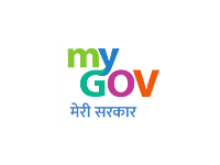PRESIDENT's ORDER, 1960
{Copy of Notification No. 2/8/60-O.L. (Ministry of Home Affairs), dated 27th April, 1960}
NOTIFICATION
The following Order made by the President is published for general information-
New Delhi, the 27th April, 1960
ORDER
A Committee consisting of 20 members of the Lok Sabha and 10 members of the Rajya Sabha was constituted in accordance with the provisions of clause (4) of article 344 of the Constitution to examine the recommendations of the first Official Language Commission and to report their opinion thereon to the President. The Committee submitted its report to the President on 8th February, 1959. The important points in the report indicating the Committee's general approach are as follows:-
| Type | Points |
|---|---|
| (a) | The Constitution contains an integrated scheme of Official Language and its approach to the question is flexible and admits of appropriate adjustments being made within the framework of the scheme. |
| (b) | Different regional languages are rapidly replacing English as a medium of instruction and of official work in the States. It is but natural that the regional languages should secure their rightful place. The use of an Indian Language for the purposes of the Union has thus become a matter of practical necessity, but there need be no rigid date-line for the change-over.It should be a natural transition over a period of time effected smoothly and with the minimum of inconvenience. |
| (c) | English should be the principal official language and Hindi the subsidiary Official Language till 1965. After 1965, when Hindi becomes the principal official language of the Union, English should continue as the subsidiary official language. |
| (d) | No restriction should be imposed for the present on the use of English for any of the purposes of the Union and provision should be made in terms of clause (3) of article 343 for the continued use of English even after 1965 for purposes to be specified by Parliament by law for as long as may be necessary. |
| (e) | Considerable importance attaches to the provision in article 351 that Hindi should be so developed that it may serve as a medium of expression for all the elements of the composite culture of India; and every encouragement should be given to the use of easy and simple diction. |
Copies of the report were placed on the Table of both Houses of Parliament in April, 1959 and the report was discussed in the Lok Sabha from 2nd to 4th September, 1959, and in the Rajya Sabha on 8th and 9th September, 1959. In the course of the discussions in the Lok Sabha, the Prime Minister made a speech on 4th September, 1959, indicating broadly the approach of the Government to the official language question.
2. In exercise of the powers conferred by clause (6) of article 344, the President has considered the report of the Committee and, with reference to the opinion expressed by the Committee on the recommendations of the Official Language Commission, issues the directions hereinafter appearing.
- Terminology- The main recommendations of the Commission which the Committee has accepted are:
- in preparing terminology clarity, precision and simplicity should be primarily aimed at;
- international terminology may be adopted or adapted in suitable cases;
- the maximum possible identity should be aimed at in evolving terminology for all Indian languages; and
- suitable arrangements should be made for co-ordinating the efforts made at the Centre and in the States for evolving terminology in Hindi and other Indian languages.
The Committee envisages further that in the field of science and technology there should, as far as possible, be uniformity in all Indian Languages and the terminology should approximate closely to English or international terms and has suggested that Standing Commission consisting chiefly of scientists and technologists may be constituted to co-ordinate and supervise the work done by various agencies in this field and to issue authoritative glossaries for use in all Indian languages.
The Ministry of Education may take action:-
- to review the work done so far and to evolve terminology in accordance with the general principles accepted by the Committee. In the field of science and technology, the terms in international use should be adopted with the minimum change, i.e., the base-words should be those at present in use in international terminology, although the derivatives may be Indianised to the extent necessary.
- to formulate proposals for making arrangements for co-ordination of the work of preparation of terminology; and
- to constitute a Standing Commission for the evolution of scientific and technical terminology as suggested by the Committee.
- Translation of administrative manuals and other procedural literature :-
In view of the need for ensuring a measure of uniformity in the language used in the translation of manuals and other procedural literature, the Committee has accepted the recommendation of the Commission about the advisability of entrusting the work to a single agency.
The Ministry of Education may undertake the translation of all manuals and procedural literature other than statutory rules, regulations and orders. The translation of statutory rules, regulations and orders is intimately connected with the work of translation of statutes and the Ministry of Law may take up this work. It should be the endeavour to secure in these translations maximum possible uniformity in terminology in all the Indian languages. - Training of administrative personnel in the Hindi medium:-
- In accordance with the opinion expressed by the Committee, in-service training in Hindi may be made obligatory for Central Government employees who are aged less than 45 years. This will not apply to employees below Class III grade, industrial establishments and work-charged staff. In this scheme, no penalty should be imposed for failure to attain the prescribed standards by the due date. Facilities for Hindi training may continue to be provided free of cost to the trainees.
- Necessary arrangements may be made by the Ministry of Home Affairs for the training of typists and stenographers employed under the Central Government in Hindi typewriting and stenography.
- The Ministry of Education may take early steps to evolve a standard key-board for Hindi typewriters.
- Propagation of Hindi.-
- The Committee has agreed with the recommendation of the Commission that the responsibility for this work should now be sponsored officially. Where efficient voluntary organisations already exist, they may be aided financially and in other ways, and where such agencies do no exist, Government may set up the necessary organisation themselves.
The Ministry of Education may review the working of the existing arrangements for propagation of Hindi and take further action on the lines indicated by the Committee. - The Ministry of Education and Scientific Research & Cultural Affairs may, in collaboration, take steps to encourage studies and research in Indian linguistics, philology and literature as suggested by the Committee, and formulate necessary proposals for bringing the various Indian languages closer and for developing Hindi in accordance with the directive contained in article 351.
- Recruitment to local offices of Central Government Departments:-
- In the opinion of the Committee, local offices of the Central Government departments should use Hindi for their internal working and the respective regional languages in their public dealings in the respective regions.
In formulating the plan for the progressive use of Hindi in addition to English in their local offices, the Central Government Departments should keep in view the need for providing facilities to the local public by making available to them forms and departmental literature for their use in the regional languages in as large measure as practicable. - In the opinion of the Committee, the staff structure of the administrative agencies and departments of the Central Government should be reviewed and decentralised on a regional basis, and the recruitment methods and qualifications may have to be revised suitably.
The suggestion may be accepted in principle, without introducing any domicile qualifications, in regard to categories of posts in local offices of which the incumbents are not ordinarily liable to transfer outside the region. - The Committee has agreed with the recommendation of the Commission that the Union Government would be justified in prescribing a reasonable measure of knowledge of Hindi language as a qualification for entering into their services, provided a sufficiently long notice is given and the measure of linguistic ability prescribed is moderate, any deficiency being made good by further in-service training.
This recommendation may be applied for the present in regard to recruitment in the local offices of the Central Government departments in the Hindi-speaking areas only, and not in the local offices in non-Hindi-speaking areas.
The directions under (a), (b) and (c) above will not apply to the offices under the Indian Audit and Accounts Department. - Training Establishments -
- The Committee has suggested that English may continue as the medium of instruction for training establishments such as the National Defence Academy but suitable steps may be taken to introduce Hindi as the medium for all or some of the purposes of instruction.
The Ministry of Defence may take suitable preparatory measures such as publication of instruction books, etc., in Hindi to facilitate its use as a medium of instruction, where feasible. - The Committee has suggested that English and Hindi should be the media of examination for entrance to training establishments with the option to candidates to select either with reference to all or any of the papers and an expert committee should be appointed to examine the practicability of introduction of regional languages as media without bringing in a quota system.
The Ministry of Defence may take necessary measures for introducing Hindi as an alternative medium for the entrance examination and for constituting of an expert committee to examine the question of introduction of regional languages as media without introducing any quota system. - Recruitment to All-India Services and higher Central Services-
- Medium of examination- The Committee's opinion is that (i) English may continue to be the medium of examination and Hindi may be admitted as an alternative medium after sometime, both Hindi and English being available thereafter as media at the option of the candidate for as long as necessary; and (ii) that an expert committee be appointed to examine the feasibility of introducing the various regional languages as media without bringing in any quota system.
Necessary action may be taken by the Ministry of Home Affaris in consultation with the Union Public Service Commission for the introduction of Hindi as an alternative medium after sometime. The introduction of various regional languages also as an alternative media is likely to lead to serious difficulties and it is not, therefore, necessary to appoint an expert committee to examine the feasibility of introducing regional languages as alternative media. - Language papers - The Committee's opinion is that after due notice, there should be two compulsory papers of equal standard, one in Hindi and another in a modern Indian language other than Hindi to be selected by the candidate.
For the present, only an optional Hindi language paper may be introduced. Candidates selected on the results of the competition who qualify in this paper may be exempted from appearing the passing the Hindi departmental test after recruitment. - Numerals -
As suggested by the Committee, a uniform basic policy should be adopted for the use of Devanagari numerals, in addition to the international numerals, in the Hindi publications of the Central Ministries depending upon the public intended to be addressed and the subject-matter of the publication. For scientific, technical and statistical publications, including the international numerals should be adopted uniformly in all publications. - Language of Acts, Bills, etc. -
- The Committee has expressed the opinion that Parliamentary legislation may continue to be in English but an authorised translation should be provided in Hindi.
The Ministry of Law may, in due course, initiate necessary legislation to provide for an authorised Hindi translation of Parliamentary legislation which may continue to be in English. Arrangements may be made by the Ministry of Law also for providing translations of Parliamentary legislation into the regional languages. - The Committee has expressed the opinion that where the original text of Bills introduced in or Acts passed by the State legislature is in language other than Hindi, a Hindi translation may be published with it besides an English translation as provided in clause (3) of article 348.
In due course, legislation may be initiated for the publication of a Hindi translation of State Bills, Acts, and other statutory instruments, along with the text in the official language of the State. - Language of the Supreme Court and High Coursts-
The Official Language Commission recommended that so far as the language of the Supreme Court is concerned Hindi eventually should be the language of the Supreme Court when the time comes for the change-over. The Committee has accepted this recommendation.
In regard to the language of the High Courts, the Commission considered the pros and cons of the regional and Hindi languages and recommended that when the time for the change-over arrives, the language of judgments, decrees and orders of High Courts should be the Hindi language in all regions, but the Committee has expressed the opinion that in the High Courts provision may be made by introducing necessary legislation for the use optionally of Hindi and official languages of States for purposes of judgments, decrees and orders of High Courts with the previous consent of the President.
The opinion of the Committee regarding the functioning of the Supreme Court eventually in Hindi is acceptable in principle and will require appropriate action only when the time comes for a change-over.
In respect of the language of the High Courts, the Ministry of Law may in due course undertake necessary legislation to provide for the use optionally of Hindi and other official languages of States for purposes of judgments, decrees and orders with the previous consent of the President, as suggested by the Committee in modification of the recommendation of the Commission. - Preparatory measures for change-
over in the field of law - The Committee has agreed with the recommendations of the Commission relating to the preparation of a standard legal lexicon, re-enactment of the statute book in Hindi in respect of both Central and State legislation plan of action for evolving a legal terminology and for taking other preparatory steps during the transitional period during which the statute book as well as the case law will be partially in Hindi and in English, and has also suggested the constitution of a Standing Commission or a similar high-level body consisting of legal experts representing the different national languages of India for the proper planning and implementation of the entire programme relating to translation of statutes and preparation of legal terminology and glossaries. The Committee has also expressed the opinion that the State Governments might be advised to take necessary measures in consultation with the Central authorities.
The Ministry of Law may take action in the light of the suggestion of the Committee to constitute a Standing Commission of legal experts for the proper planning and implementation of the entire work relating to preparation of a standard legal terminology (for use as far as possible, in all Indian languages) and translation of statutes in Hindi. - Plan or programme for the progressive use of Hindi -
The Committee has suggested that the Union Government should prepare and implement a plan of action for the progressive use of Hindi as the official language of the Union. No restrictions are to be imposed, for the present, on the use of the English language for any of the official purposes of the Union.
Necessary action may be taken accordingly by the Ministry of Home Affairs for the preparation and implementation of a plan or programme, which will be concerned with preparatory measures for facilitating the progressive use of Hindi in the Union administration, and for promoting the use of Hindi in addition to English for the various purposes of the Union as provided in clause (2) of article 343 of the Constitution. The extent to which Hindi can be used in addition to English will depend largely on the effectiveness of the preparatory measures. The plan for the actual use of Hindi, in addition to English, will need to be reviewed and adjusted from time to time in the light of experience.













